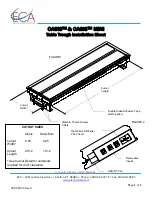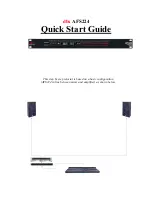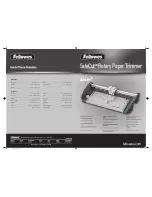
22
SELECTION OF OUTPUT TERMINALS
CURRENT MAIN
The MEGGER Model SR-98 Relay test set has four current-rated output terminals at
various voltage and current ratings provided to adapt the unit to a wide variety of test
circuit impedance’s. Two pair of voltage output terminals are provided for variable
AC/DC voltage applications.
The SR-98 can be operated most efficiently for current applications by using the
terminal with the HIGHEST CURRENT-LOWEST VOLTAGE rating suitable for the test.
The LOW CURRENT-HIGH VOLTAGE terminals should be used when testing high-
impedance devices, where the low voltage terminal will not "push" the desired test
current through the device(*), without waveform distortion.
(*) When making a timing test on an overcurrent relay, it is suggested that the
appropriately rated output terminal be used. The lowest current-rated terminal has
much higher voltage available, which will tend to nullify the effect of relay core
saturation, thus producing test times matching the relay manufacturer’s published time
curves within allowable tolerances. If necessary, a
RESISTOR BANK
(see
Description
of Controls and Instrumentation, item 7
) is provided to series with the current output.
Adding additional resistance in series with the relay coil requires a higher compliance
voltage, thus reducing waveform distortion and improving timing results.
CAUTION: Do
not exceed the current ratings (shown on the front panel as 2A, 10A and 15A) for
each resistor element. Doing so may cause damage to the resistor element.
AC AUX
and
DC AUX
The SR-98 has two sets of voltage output terminals, one for AC and one for DC. The
AC output is capable of providing 0 to 300 Volts AC with a maximum of 0.75 A. The DC
output is capable of providing 0 to 250 Volts DC with a maximum of 0.4 Amperes. The
DC output terminals also serve to provide DC current up to 2.5 Amperes at 12 Volts DC.
The current and voltage output terminals are never to be used interchangeably. Never
use more than one current-rated output terminal at a time and only in conjunction with
the current output common terminal.
Warning: Never apply an external voltage or
current to any output terminals of the test set. External voltage and currents may
only be applied to the MEASUREMENT INPUT
terminals
(see
Description of
Controls and Instrumentation
item
13
).
Summary of Contents for SR-98
Page 93: ...87...
















































